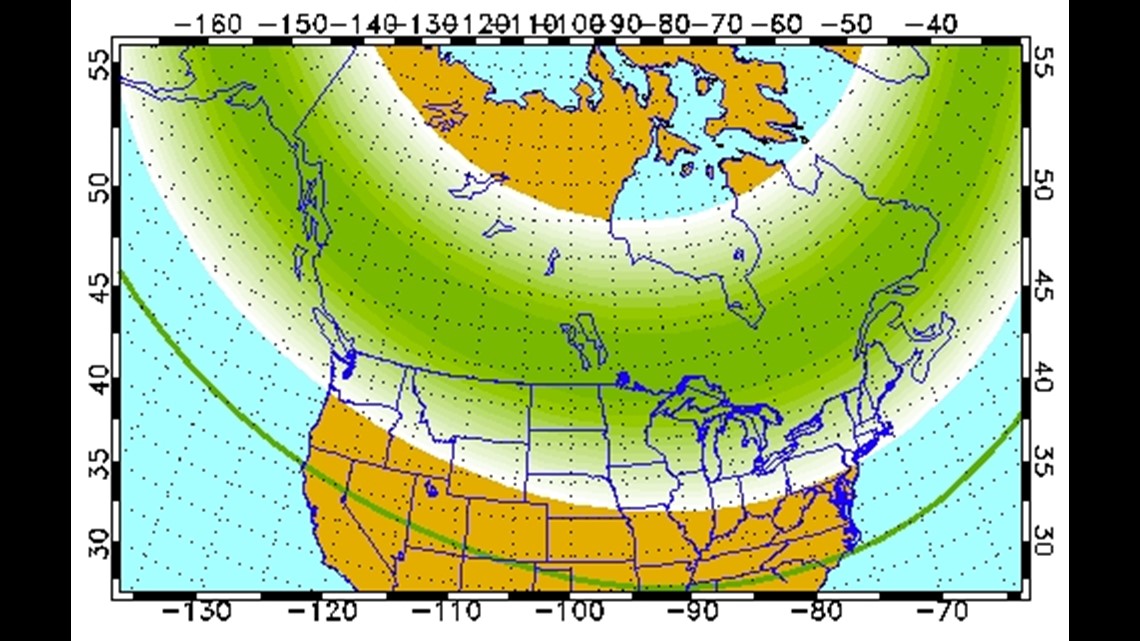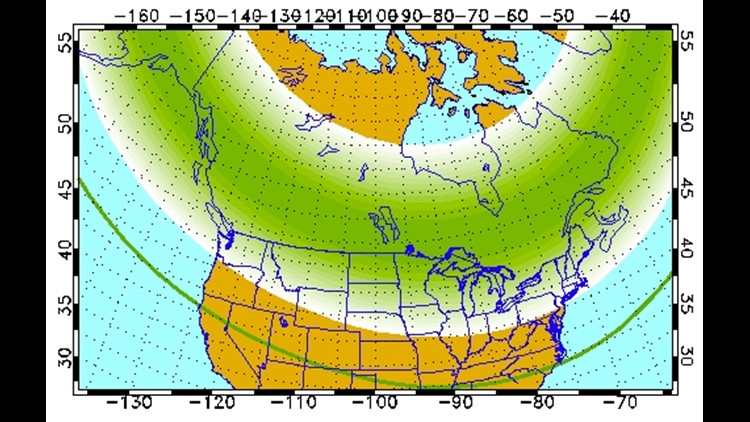ST. LOUIS — Keep an eye on the northern sky this weekend!
The NOAA's Space Weather Prediction Center has issued a geomagnetic storm watch.
NOAA expects the wave of energy from a solar storm to arrive Saturday night. This could trigger waves of northern lights across mainly the Upper Midwest.
We will have to wait and see if the lights will be visible all the way down to St. Louis.
One thing is for sure, our sky will be clearing just in time.


Tips on reading forecast maps from the University of Alaska, Fairbanks:
- University of Alaska, Fairbanks: Solid green line is the extent of visibility of less active displays lower on the horizon, green and white blob refers to more active displays higher in the sky. Along that green line experts wouldn't expect much more than a general green hue to the northern sky.
- NOAA: Green does not mean aurora it means the probability of aurora. Visibility can extend south of the blob indicated in this forecast, but lower on the horizon and less spectacular.
This is the strongest coronal mass ejection (CME) of this solar cycle and the first in about 4 years and it is directed right at Earth.
So, NOAA issued a G3 (strong) Geomagnetic Storm Watch for Oct. 30-31 following a strong solar flare that erupted above a sunspot in the Sun's southern hemisphere on Oct. 28 around 11:35 EDT. This eruption produced a CME.
High energy particles are heading toward Earth. The more energy, the more it can travel along magnetic lines as it is funneled in from the north and south poles, increasing the chance of seeing the Aurora Borealis or the northern lights.
Current forecasts have the line where possible activity may be visible well into the northern U.S., as far south as Northern California, Oklahoma, Tennessee, and North Carolina. This includes the St. Louis area.
Resources:
- Video of 10/28/21 solar flare/CME (credit NASA/SDO) https://sdo.gsfc.nasa.gov/data/dailymov/movie.php?q=20211028_1024_0171
- NOAA Geomagnetic Storm watch: https://www.swpc.noaa.gov/news/geomagnetic-storm-watch-effect-30-31-oct (NOAA SWPC)
- Aurora forecast (updated daily at 00Z) https://www.gi.alaska.edu/monitors/aurora-forecast (University of Alaska, Fairbanks)
- Aurora forecast (updated every 30 minutes) https://www.swpc.noaa.gov/products/aurora-30-minute-forecast (NOAA SWPC)
- All Sky camera https://allsky.gi.alaska.edu/ (University of Alaska, Fairbanks)



